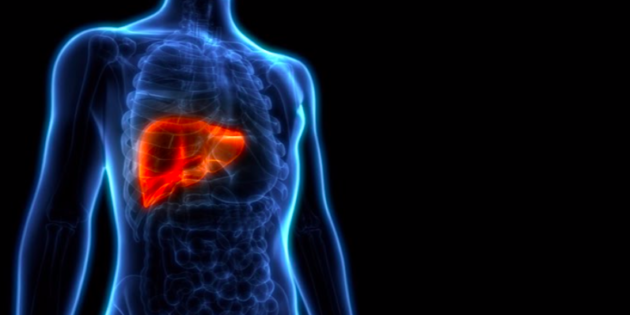For decades, science has been showing that what we eat plays a vital role in our heart health. In the past 5 years, the details of the complex connection between the gut and heart are in focus.
The gut microbiome consists of trillions of microbes that reside in the gastrointestinal tract and influence health by helping us digest food, produce vitamins, that also regulate our immune system, and provide protection against disease-causing microorganisms.
Cleveland Clinic researchers have reported findings from several studies that our gut microbiome directly changes the function of blood platelets, influencing the risk for stroke and heart attack.
How Does It Work?
When we ingest certain nutrients, such as choline (which is abundant in red meat, dairy products, and egg yolks), and L-carnitine (which is found in red meat and in some energy drinks), the gut bacteria that helps breaks these down produces a compound called trimethylamine (TMA). After this, our liver converts TMA into an artery-clogging compound called trimethylene N-oxide (TMAO).
TMAO in high levels directly contributes to a heightened risk for clot-related incidents, such as stroke or heart attack. In a study done in 2016, scientists showed that high blood levels of TMAO are associated with higher rates of premature death in a group of 2235 patients with coronary artery disease. Those patients who had higher blood levels of TMAO had a four times greater risk of dying from any cause over the course of the next five years. [1] TMAO changes cholesterol metabolism and contributes to the accumulation of cholesterol within the artery walls.
An Indicator of Future Disease
A January 2017 study has found that high levels of TMAO in the blood are a key danger indicator among people who end up in the emergency room with chest pain. [2] Doctors are now starting to recognize TMAO levels as important biomarkers for heart disease, just as is high cholesterol levels and Troponin T levels. Even if you have low cholesterol or low blood pressure, high TMAO levels will point to an increased risk for heart disease.
Sources of TMAO
Our digestive tract is packed with trillions of bacteria, and the balance of this complex ecosystem is vital for our health. Some of the bacteria feed on choline and carnitine. These nutrients are plentiful in meat, dairy, and eggs. Lamb and beef are most dangerous since they contain anywhere from 50 to 160 mg of carnitine per serving, compared to around 3 to 8 mg in seafood, chicken, pork, or high-fat dairy products.
The 2016 study showed that when vegans would eat a steak, they would produce virtually no TMAO. This is because carnitine is used by only specific intestinal bacteria as a food source, and vegans don’t have these microbes in their gut microbiome available to digest carnitine, so no TMA is made.
Our kidneys are also vulnerable to TMAO. According to a study done on more than 3,500 subjects with normal kidneys, high TMAO levels were associated with chronic kidney disease and higher mortality rates in a span of the following five years. [3]
Good Nutrition Makes All the Difference
When you consume a diet that is high in choline and carnitine, it will encourage the growth of bacteria that feed on them. This will lead to more production of TMA by the bacteria, which will arrive in the liver to produce more TMAO in the body, leading to more damage.
A plant-based dietary approach that rarely includes animal foods or to a maximum level of once a week, and is instead rich in plant based proteins such as legumes, and is rich in fiber, will foster a healthy gut microbiome. This proves to be the most effective way to substantially reduce the risk of developing any vascular connected disease.
Feel free to comment below and let me know what you liked best about this article.
Thank you for taking the time to read this. I’d be honored if you would share it with your family, friends, and followers by clicking the Like, Tweet, and Share buttons. If you are serious about improving your health no matter what your age or circumstances, and are ready to finally achieve optimal health and lose the weight you’ve been struggling with, then click HERE to check out my online Guerrilla Diet Wholistic Lifestyle Bootcamp for Healthy and Lasting Weight Loss.
If you are not already on my mailing list where you will receive my weekly articles packed with scientifically based health, and nutrition content, as well as many FREE bonuses and special offers, and much more, then click HEREto subscribe.
Thank You, 🙂
Dr. Galit Goldfarb
References:
- [1] Vichai Senthong, MD, Zeneng Wang, PhD, Xinmin S. Li, PhD, Yiying Fan, PhD, Yuping Wu, PhD, W. H. Wilson Tang, MD, and Stanley L. Hazen, MD, PhD. Intestinal Microbiota?Generated Metabolite Trimethylamine?N?Oxide and 5?Year Mortality Risk in Stable Coronary Artery Disease: The Contributory Role of Intestinal Microbiota in a COURAGE?Like Patient Cohort. Nutritional Status, Nutritional Habits and Their Underlying Mechanisms on Neurodegenerative Diseases. J Am Heart Assoc. 2016 Jun; 5(6): e002816. Published online 2016 Jun 10. doi: 10.1161/JAHA.115.002816.
- [2] Xinmin S Li, Slayman Obeid, Roland Klingenberg, Baris Gencer, François Mach, Lorenz Räber, Stephan Windecker, Nicolas Rodondi, David Nanchen, Olivier Muller, Melroy X Miranda, Christian M Matter, Yuping Wu, Lin Li, Zeneng Wang, Hassan S Alamri, Valentin Gogonea, Yoon-Mi Chung, W H Wilson Tang, Stanley L Hazen, Thomas F Lüscher. Gut microbiota-dependent trimethylamine N-oxide in acute coronary syndromes: a prognostic marker for incident cardiovascular events beyond traditional risk factors. Multicenter Study, 2017 Mar 14; 38(11): 814-824. doi: 10.1093/eurheartj/ehw582.
- [3] W H Wilson Tang, Zeneng Wang, David J Kennedy, Yuping Wu, Jennifer A Buffa, Brendan Agatisa-Boyle, Xinmin S Li, Bruce S Levison, Stanley L Hazen. Gut microbiota-dependent trimethylamine N-oxide (TMAO) pathway contributes to both development of renal insufficiency and mortality risk in chronic kidney disease. Circ Res. 2015 Jan 30; 116(3):448-55. doi: 10.1161/CIRCRESAHA.116.305360. Epub 2014 Nov 5.





Leave A Response